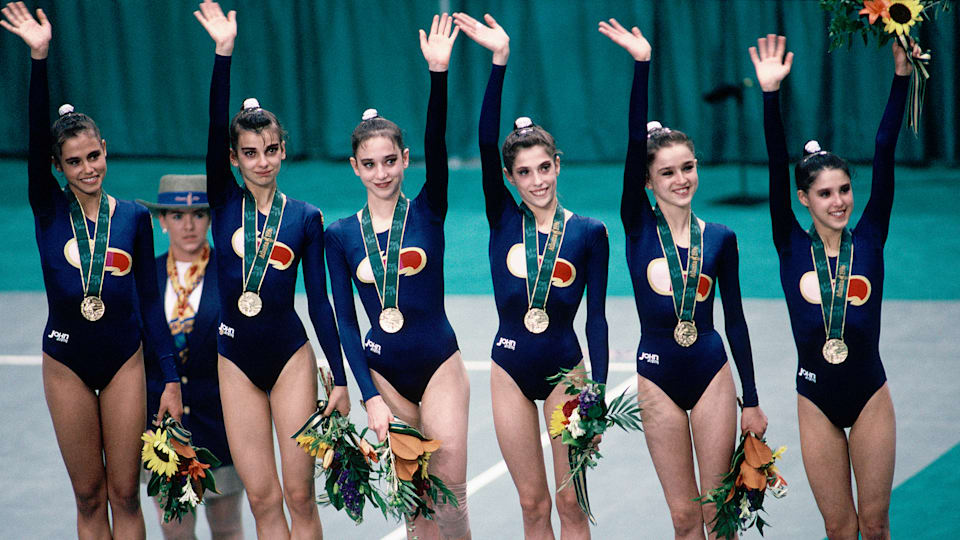Golden Girls take time to realise how much they shone
When “Las Niñas de Oro” became the youngest Olympic champions in Spain’s history at the Olympic Games Atlanta 1996, the rhythmic gymnastics sextet had little idea of the magnitude of their historic achievement, and how they would continue to inspire the younger generations far into the future.

Las Niñas de Oro – the Golden Girls of Atlanta – are the subject of an Olympic Channel episode of Legends Live On, which also features double Olympic gymnastics champion Svetlana Khorkina, Pieter van den Hoogenband, who won three titles in the pool, and six-time fencing champion Valentina Vezzali.
For almost two years, the young athletes, aged 15 to 17, lived and trained together under the exacting eye of national team coach Emilia Boneva, setting their studies to one side from January 1996 to focus solely on Atlanta, where the team event would be contested for the first time.
They were tested when María Pardo left their group three months before the Games, with Lorena Guréndez stepping in, but their dedication and belief drove them through circumstances that could have destabilised them.
Russia and Bulgaria were dominant at the time and both performed flawless opening routines, with Spain having to add several risky elements which left no room for error. They led after the first round and looked on as Bulgaria failed to outscore them in the multi-apparatus round, before Russia made a crucial error in the final seconds. Victory was Spain’s.
Meeting in Madrid 22 years later, the group reflected on their time together, as well as their ultimate prize in Atlanta – the significance of which, Nuria Cabanillas believes, they did not comprehend.
She told the Olympic Channel: “Only today do we realise what we accomplished. The importance of representing your country, that medal and what it represented. Back then we weren’t aware.”
Now the group harness their experience and ongoing passion for the sport to teach and inspire young people.
Cabanillas and Tania Lamarca also run their own rhythmic gymnastics camps. Lamarca’s places an emphasis on youngsters with disabilities, and she has also written a book – Tears For A Medal.
